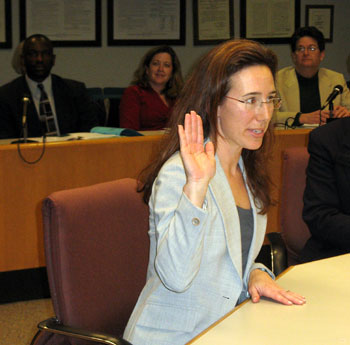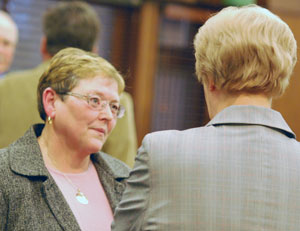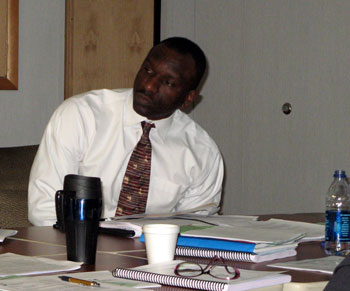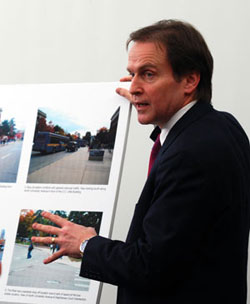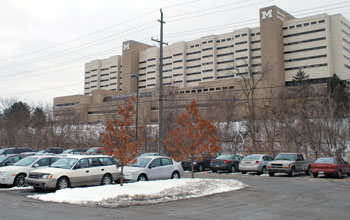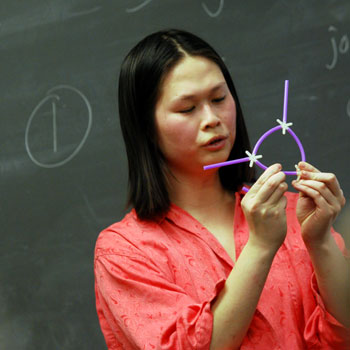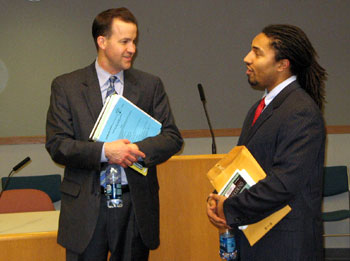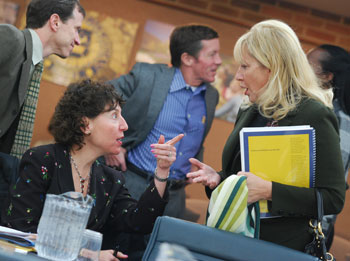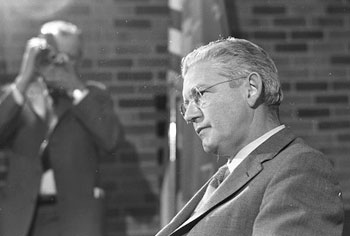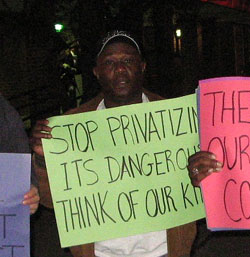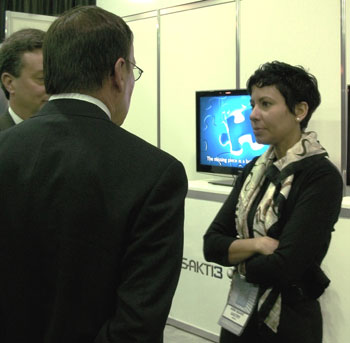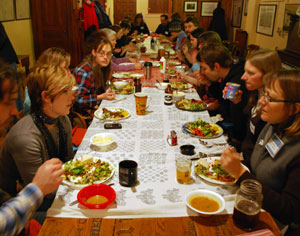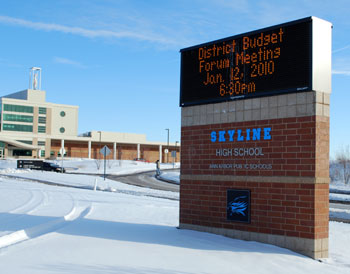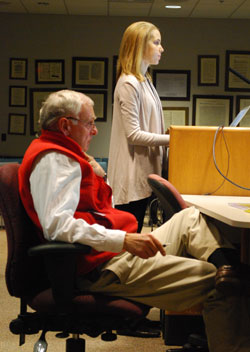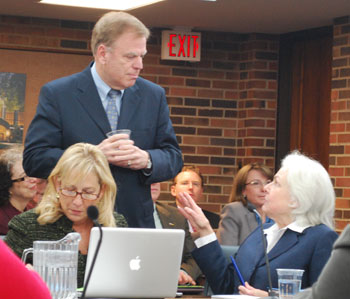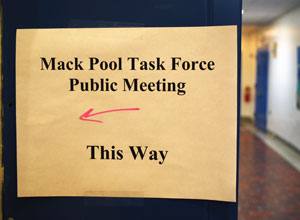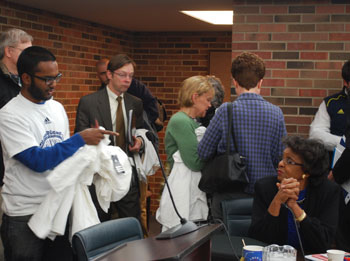Club Knits Community Scholars Together
Couzens Hall on Ann Street near the University of Michigan Hospital has previously made its way into the pages of The Ann Arbor Chronicle – as part of UM regents meeting reports. At their Dec. 17, 2009 meeting, regents authorized $49 million in construction contracts at Couzens – which chief financial officer Tim Slottow called the last of the university’s “deep” renovations of its heritage residence halls.
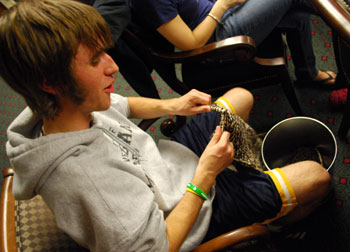
As Keegan Cisowski knits, he pulls yarn from a metal trash can he's adapted to hold his skeins. (Photos by the writer.)
Last Thursday, The Chronicle spent part of the evening in the living room of Couzens Hall – with a couple dozen members of a knitting club: Scarves with a Purpose (SWAP). The purpose is to provide homeless people with scarves.
It’s an idea that club president, UM freshman Melanie Hebeisen, brought with her from her hometown in Northbrook, Illinois, near Chicago. Hebeisen and her mom started the concept in Northbrook, and that effort has spawned four other chapters, counting the UM club.
Why scarves? It’s a choice driven in part by the fact that new recruits to SWAP typically don’t know how to knit. They’re mostly like Kinnard Hokenhull, who saw one of the SWAP knitters in his dorm making a scarf, and figured he’d like to learn how. [Full Story]





